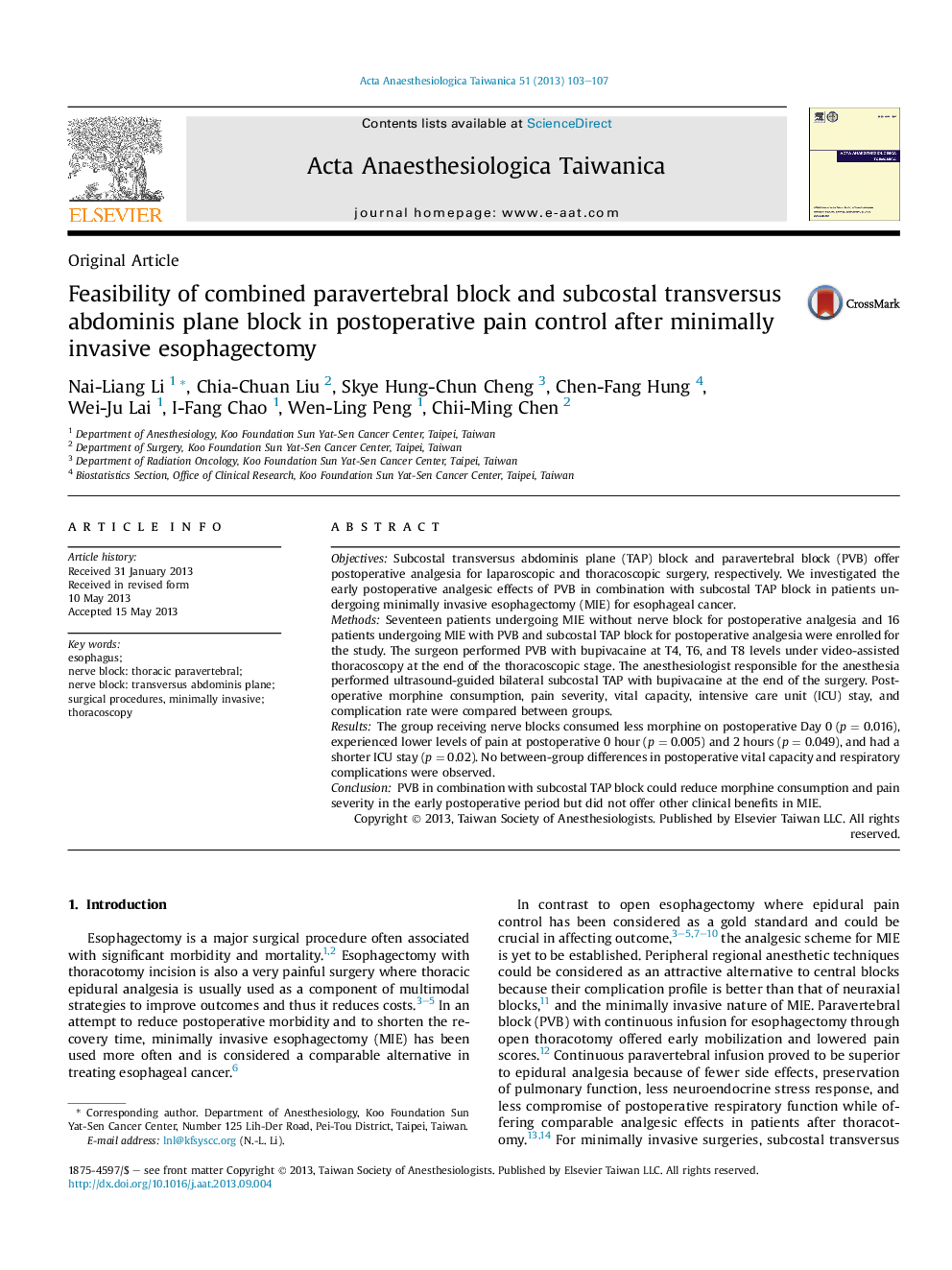| Article ID | Journal | Published Year | Pages | File Type |
|---|---|---|---|---|
| 2741473 | Acta Anaesthesiologica Taiwanica | 2013 | 5 Pages |
ObjectivesSubcostal transversus abdominis plane (TAP) block and paravertebral block (PVB) offer postoperative analgesia for laparoscopic and thoracoscopic surgery, respectively. We investigated the early postoperative analgesic effects of PVB in combination with subcostal TAP block in patients undergoing minimally invasive esophagectomy (MIE) for esophageal cancer.MethodsSeventeen patients undergoing MIE without nerve block for postoperative analgesia and 16 patients undergoing MIE with PVB and subcostal TAP block for postoperative analgesia were enrolled for the study. The surgeon performed PVB with bupivacaine at T4, T6, and T8 levels under video-assisted thoracoscopy at the end of the thoracoscopic stage. The anesthesiologist responsible for the anesthesia performed ultrasound-guided bilateral subcostal TAP with bupivacaine at the end of the surgery. Postoperative morphine consumption, pain severity, vital capacity, intensive care unit (ICU) stay, and complication rate were compared between groups.ResultsThe group receiving nerve blocks consumed less morphine on postoperative Day 0 (p = 0.016), experienced lower levels of pain at postoperative 0 hour (p = 0.005) and 2 hours (p = 0.049), and had a shorter ICU stay (p = 0.02). No between-group differences in postoperative vital capacity and respiratory complications were observed.ConclusionPVB in combination with subcostal TAP block could reduce morphine consumption and pain severity in the early postoperative period but did not offer other clinical benefits in MIE.
